Why Holocaust denial thrives in the Arab world
Holocaust denial is rampant in the Middle East, flamed by the ongoing Arab-Israeli conflict
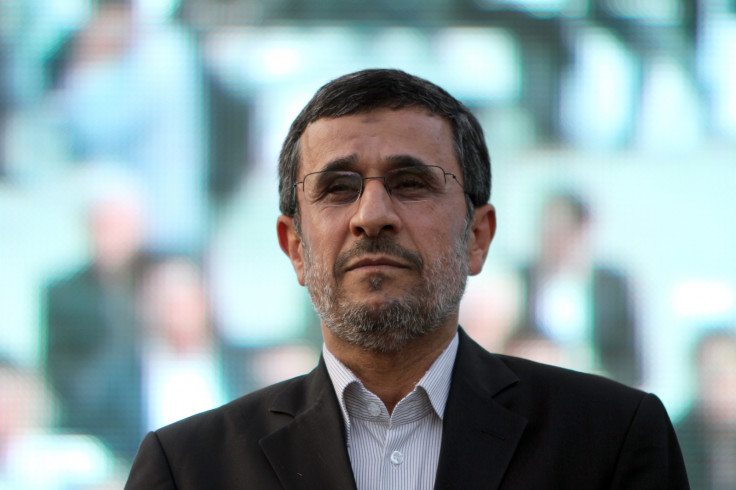
To deny the Holocaust in the Western world is to be a crank, a crackpot, a crazed conspiracy theorist. In some countries, it'll make you a criminal.
But across the Middle East, denying the incontrovertible events of the Holocaust in which 6 million Jews, as well as left-wing intellectuals, the disabled and many other oppressed groups, were murdered by the Nazis is the official line. In fact, you're in the minority if you don't.
Some political leaders and officials in the Middle East have used the populist rhetoric of Holocaust denial to bolster their own positions, reinforcing the lack of knowledge in those societies about the horrors the Jews suffered in the Second World War.
"There is definitely a high proportion of people who genuinely believe out of ignorance – and it is a matter of ignorance really, because there is very little education and knowledge of the Holocaust in the Arab countries – that this is something that has been exaggerated or even invented for the purpose of getting the West to support Israel," Professor Gilbert Achcar, a Middle East expert at the School of Oriental and African Studies (SOAS), told IBTimes UK.
"Of course, it's a very, very foolish theory. But ignorance allows such views to be widespread. Senior politicians are no exception to the rule of ignorance. The selection of leaders in the Middle East is not based on academic achievement or intellectual capacity."
Achcar, who wrote a book in 2010 titled The Arabs and the Holocaust: The Arab-Israeli War of Narratives, said the explosion of Holocaust denial in the region "is actually linked to a regression in the quality of the intellectual debate" after the rise of Islamic fundamentalism and religious conservatism since the 1960s, such as the Iranian Revolution in 1979.
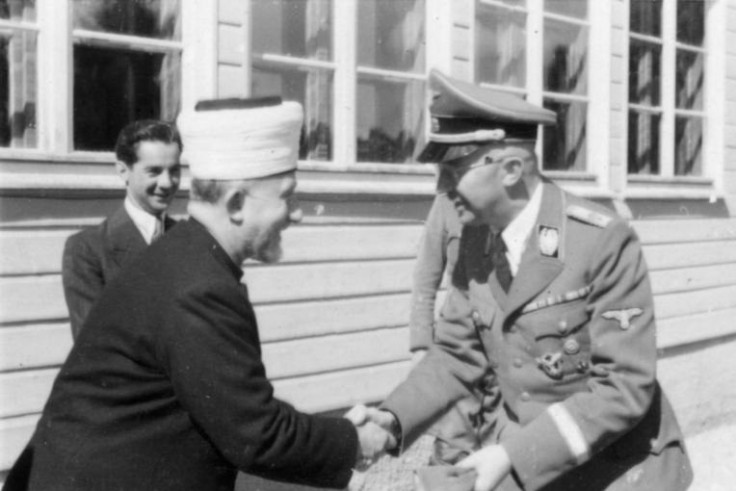
There is also an uncomfortable history between the Arabs and Nazis. Haj Amin al-Husseini, the Grand Mufti of Jerusalem before and during the Second World War, was a collaborator with Hitler's Nazi regime.
Not only did the Mufti hate British imperial rule, he also hated the Jews who had been migrating into Palestine as they fled persecution in Europe – and he knew there was a genocide taking place under Hitler.
An American industry
In one of the best-known examples of denial in the Middle East, the former Iranian President Mahmoud Ahmadinejad called the Holocaust a "myth" in 2005 and was loudly condemned by the Western world.
Shortly after, the Egyptian leader of the Muslim Brotherhood Mohammed Mahdi Akef also declared it a myth as he bemoaned Western criticism of Holocaust denial in the Middle East.
In 2009, the Islamist party Hamas erupted after claims that the UN-run schools in Palestinian territory were planning to include lessons on the Holocaust.
Rahman el-Jamal, the head of the Hamas-run education committee in Gaza, told the BBC the Holocaust was "a big lie" as he spoke out against the purported UN plans, which later transpired to be false – much to the ire of Jewish groups around the world. Another senior Hamas figure said teaching the Holocaust is "marketing a lie".
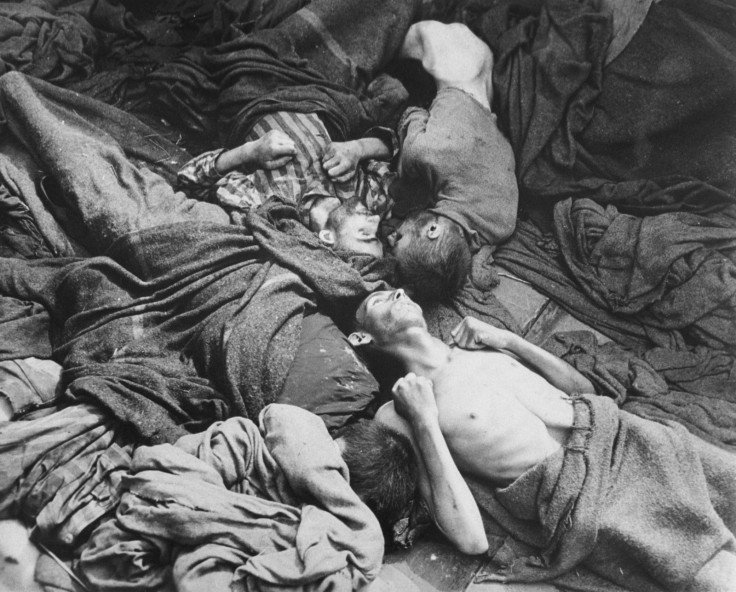
And, more recently, a senior official in the administration of ousted Egyptian President Mohammed Morsi claimed that the US helped fabricate the Holocaust.
"The myth of the Holocaust is an industry that America invented," Fathi Shihab-Eddim, who appoints the heads of state-run media in Egypt, wrote.
"US intelligence agencies in co-operation with their counterparts in allied nations during World War II created it to destroy the image of their opponents in Germany and to justify war and massive destruction against military and civilian facilities of the Axis powers, and especially to hit Hiroshima and Nagasaki with the atomic bomb."
A poll commissioned by the Jewish group Anti-Defamation League, which surveyed over 53,000 people across 101 states during 2013 and 2014, showed just how entrenched Holocaust denial is in Middle East society.
In the Middle East and North Africa region, there was an awareness rate of just 38%. Of those who had heard of the Holocaust, just 8% of those who had heard of the Holocaust said they believe the historical account of it, with 63% saying they believe it is a myth or has been greatly exaggerated.
Israel and the Nakba
Aside from the rise in Islamic fundamentalism and religious conservatism, which has fuelled ignorance and hatred, the underlying driver of the widespread Holocaust denial in the Middle East is the Arab-Israeli conflict, argues Achcar.
The Israeli government's drift to right over the past few decades, a rise in anti-Arab hatred among Israelis, and the intensifying violence against Palestinian territories like the 2014 Gaza war "exacerbates the tensions and the hatreds in the region, and one form of this hatred on the Arab side is Holocaust denial," Achcar said.
In some cases, Holocaust denial among some Arabs becomes "a form of symbolic violence from people who have no means of other retaliation". Holocaust denial is used as a weapon to hurt those who survived it, their relatives and their friends and allies.
Achcar describes a "clash of denials" between Arab states and Israel. On the Israeli part, the government does not acknowledge the Nakba as "ethnic cleansing", which Arabs and some Israeli historians argue it was.
In 1948, when the Jews of Palestine – who had faced years of persecution themselves – fought to found the state of Israel, hundreds of thousands of Palestinians either fled or were driven out of their homes and into other Arab states as impoverished refugees. Most were never to return.
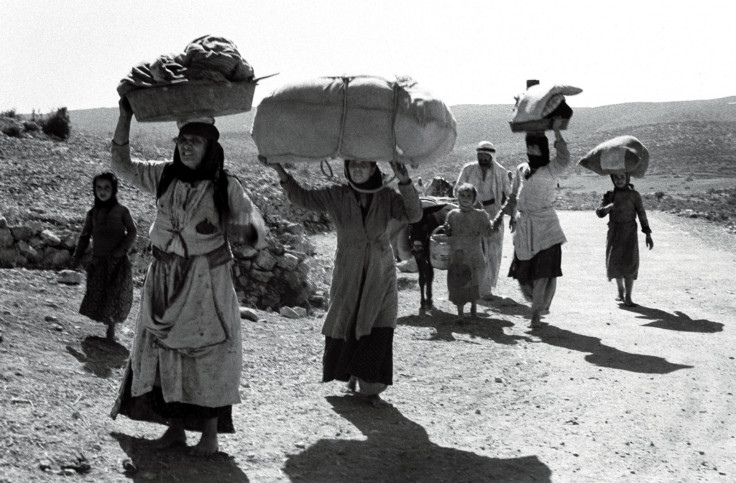
Israel's government seems to fear that by acknowledging responsibility for the Nakba – which translates as "the catastrophe" – some of the remaining 700,000 refugees of 1948 and their descendants will seek to return to claim back their former towns, villages and land.
"So this founding act of the Israeli state is denied by the Israeli state," Achcar said. "This is, if you want, a kind of tit-for-tat that leads Arabs and Palestinians to tend to deny the Holocaust since it is invoked by the Israeli state as a justification of its existence.
"Of course there are two key differences between the two events. One is the Holocaust is of a much greater magnitude than the Nakba.
"But, on the other hand, the other difference is that the Arabs have no responsibility in the Holocaust. Whereas the Nakba was done by the Israeli state. Moreover, the Holocaust is fortunately something that ended in history in 1945.
"The oppression of the Palestinians, the expulsion of the Palestinians, are ongoing and actually increasing. The levels of Israeli violence against the Palestinians… is unprecedented."
A softening?
Despite the violent 70 year tangle of the Arab-Israeli conflict, there is very small space for optimism.
President Mahmoud Abbas of the Palestinian Authority, a man who has been attacked for denying the Holocaust over his 1983 PhD thesis which questioned its victims and their stories, made conciliatory noises.
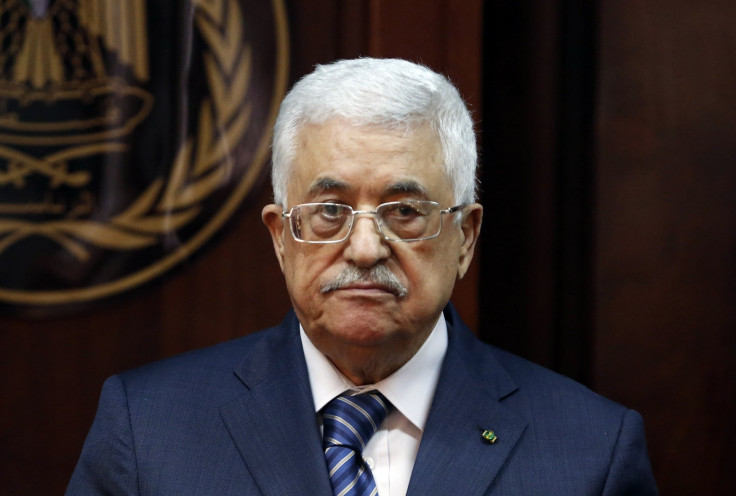
In April 2014, he described the Holocaust as the "most heinous crime to have occurred against humanity in the modern era". It was a sign that Abbas is willing to lead where other Arab peers are not: a full recognition of the Holocaust.
Then the 2014 war in Gaza broke out after events spiralled from the murder of three Israeli teenagers in which Palestinian militants were suspected of being the perpetrators.
That slight progress on Arab Holocaust denial is now at risk of disappearing under the latest tranche of violence and hate.
And it is this ongoing retaliatory violence which "makes the whole situation extremely difficult with little space for optimism now," Achcar said.
"But what we can considerately say is that there will be no possible resolution of this conflict that would not encompass mutual recognition of both tragedies," he said.
"Of course the Israeli state should recognise the Nakba and also address responsibility in acknowledging Palestinian rights.
"And of course Palestinians and Arabs should stop regarding the Holocaust as an ideological device and understand that this is a huge historical tragedy which should be fully acknowledged if any real dialogue is to be established with the Israelis."
© Copyright IBTimes 2025. All rights reserved.






















